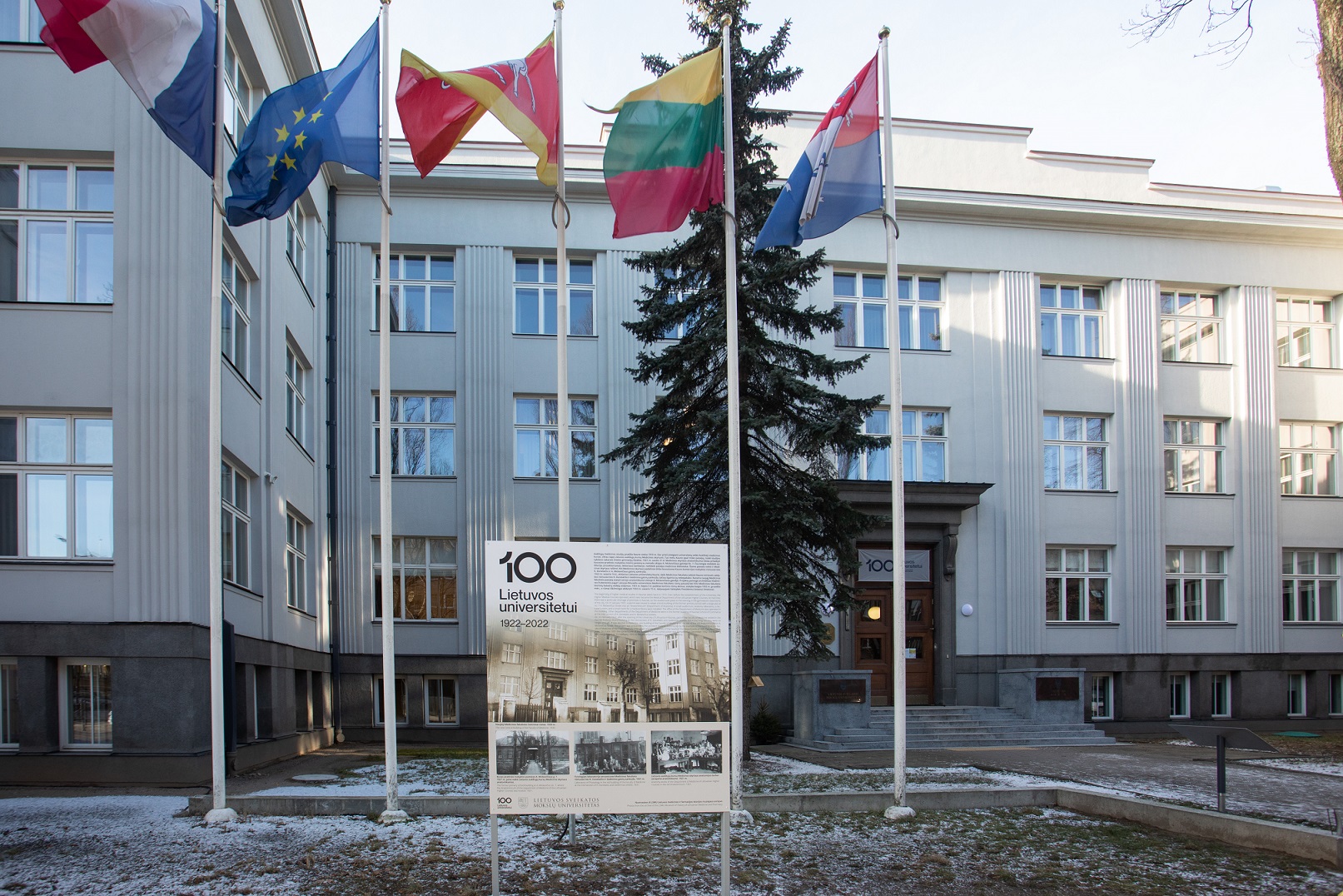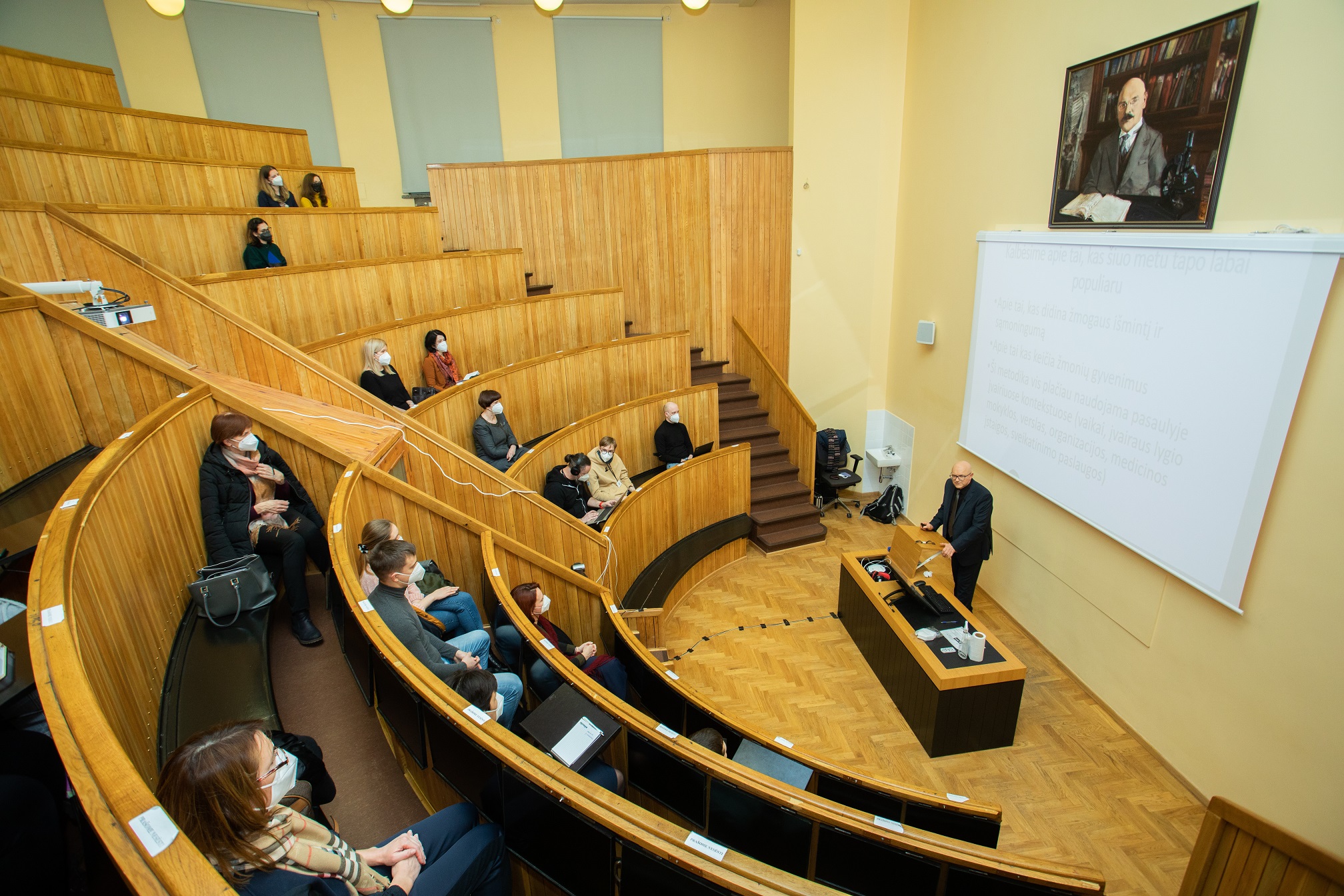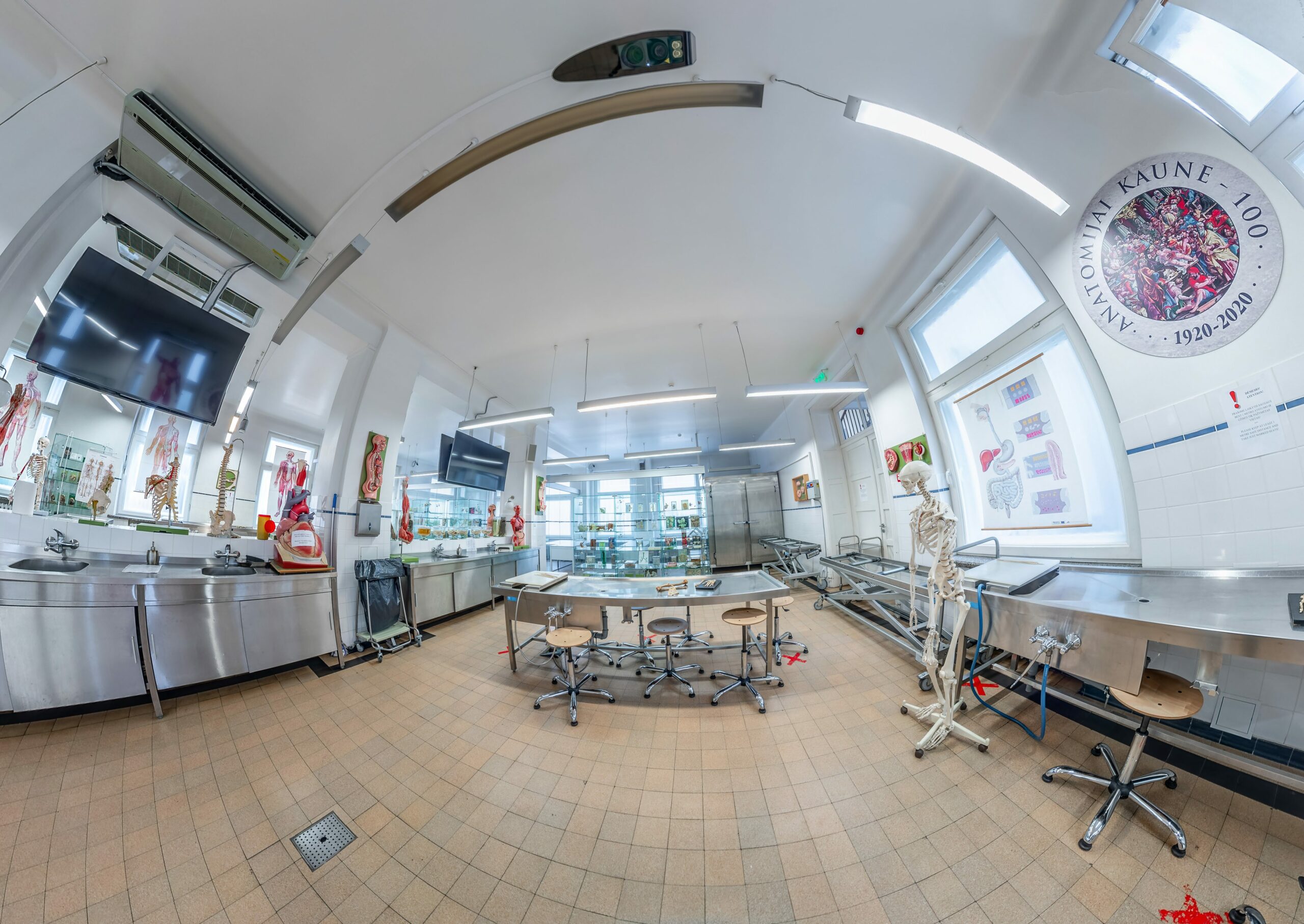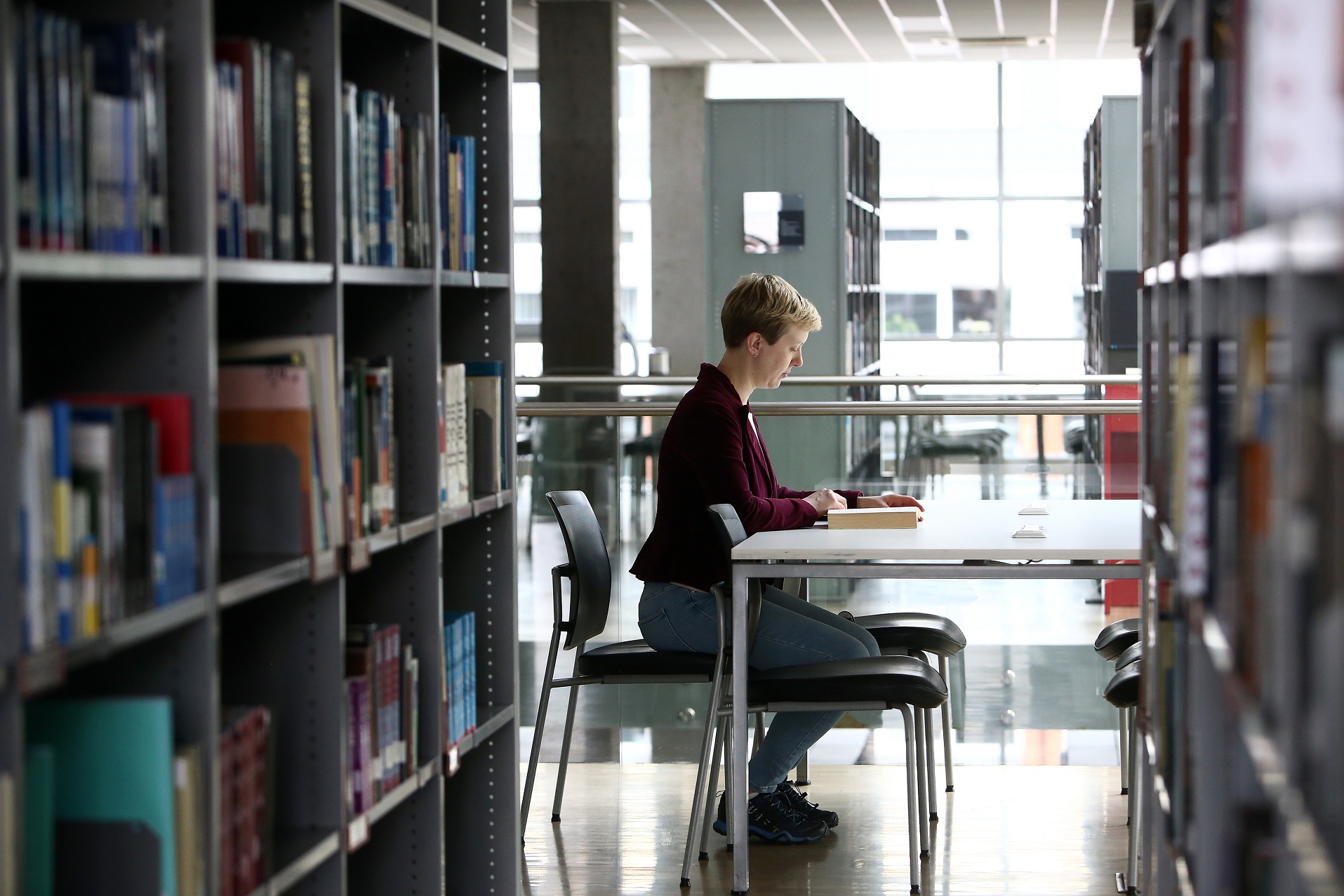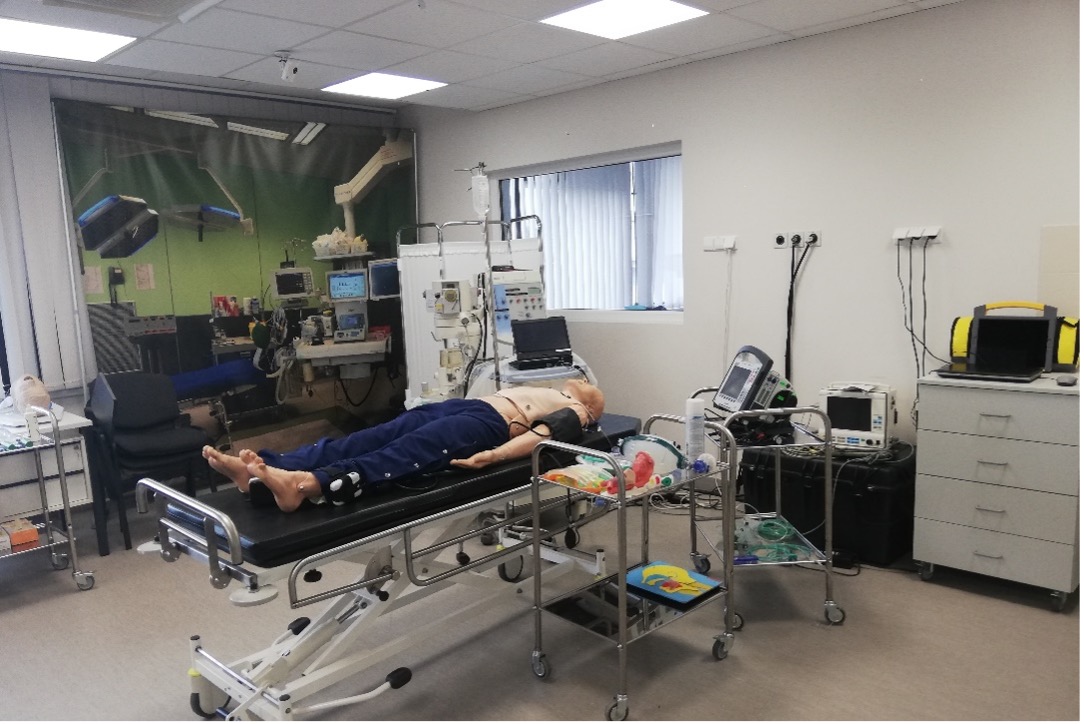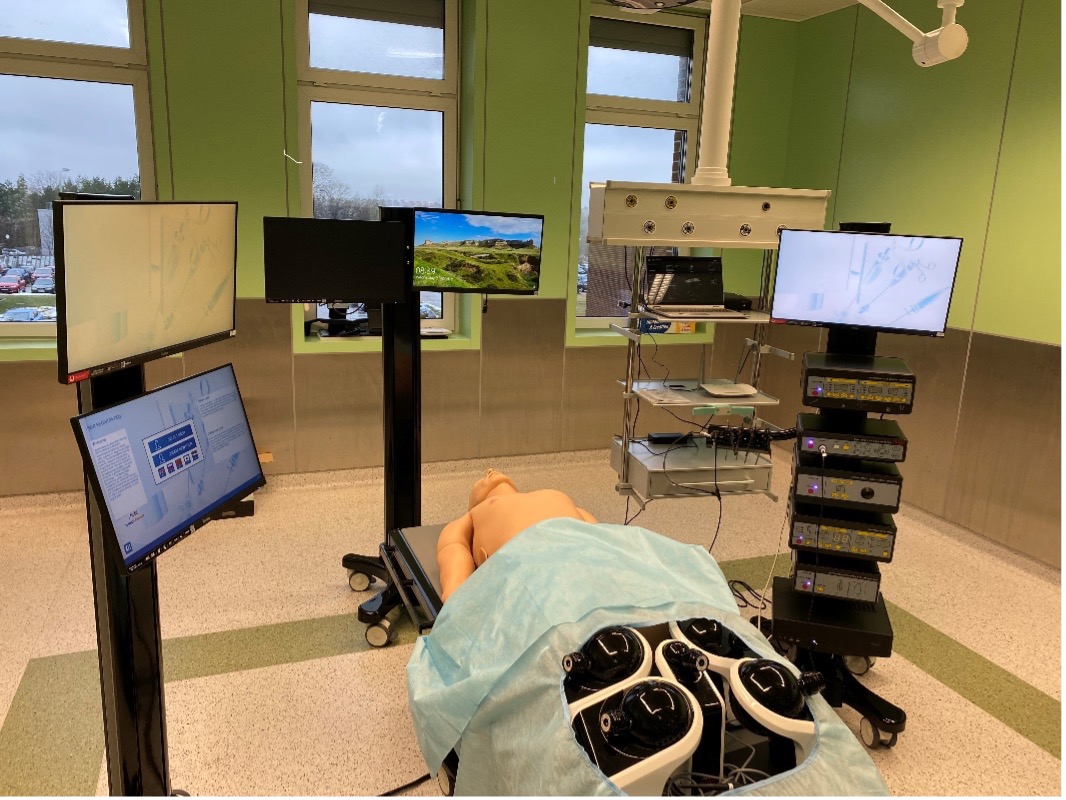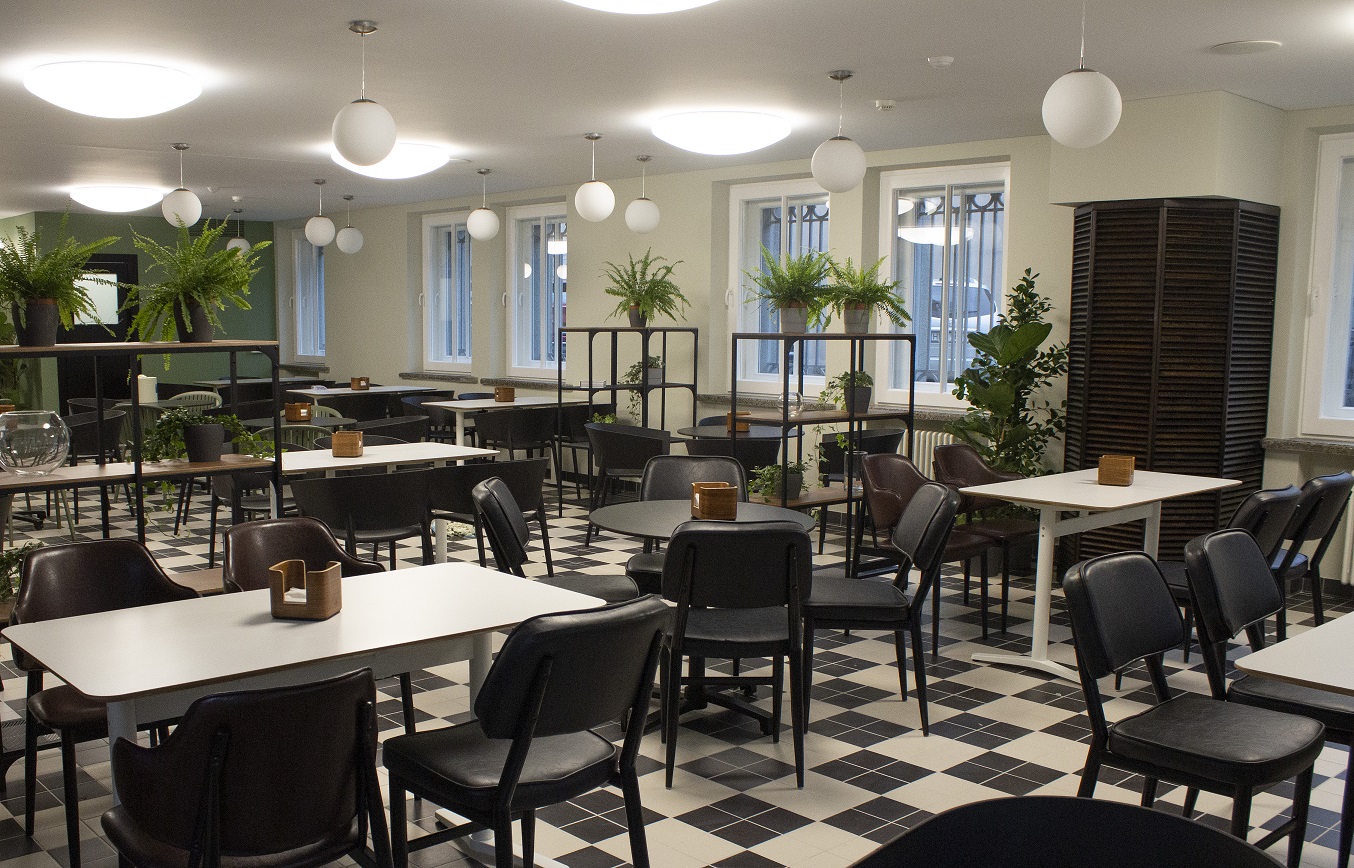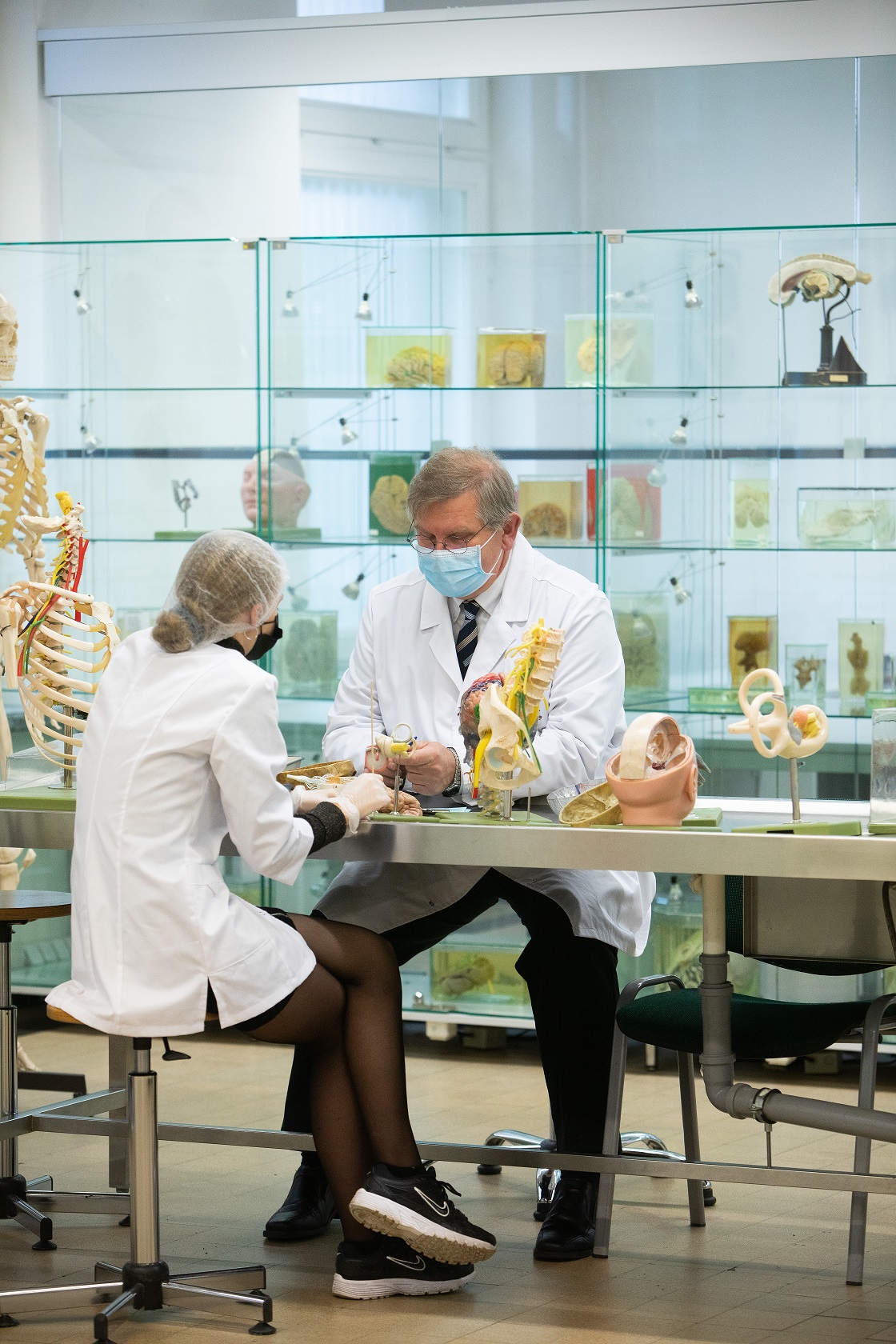LSMU Faculty of Medicine provides graduates with the opportunity to prepare for activities in health care, disease prevention and treatment, and a variety of other areas of medical and postgraduate study, providing them with a level of knowledge and practical skills that meets global standards.

Faculty of Medicine
SCIENTIFIC RESEARCH AND INNOVATION
Intensive fundamental, applied, complex, interdisciplinary scientific research activities are carried out at the faculty, including scientific programmes in the fields of cardiology, endocrinology, neurosciences, gastroenterology, infectology, pulmonology and immunology, maternal and child health, ophthalmology, oncology, otolaryngology, emergency medicine, and nephrology.
A lot has been achieved in scientific research in strategic directions – neurosciences, oncology, cardiovascular system, digestive system, covering a wide spectrum – from molecular mechanisms to population epidemiological studies or the application of scientific knowledge in the development of health technologies.
In 2018 during the comparative expert evaluation of scientific research and experimental development (R&D) carried out in Lithuania, the quality of the University’s research in the field of medicine was evaluated as the best in Lithuania and named as promising and corresponding to the level of international leaders.
Experts pointed out that productively working groups of scientists in this direction are equal to the best European research centres in terms of efficiency, and research in the fields of biology and biophysics has excellent prospects, as they are strong on an international scale.
The quality of the scientific works of LSMU authors in the fields of medical sciences is illustrated by the increasing number of scientific articles published in the publications of the highest citation database.
Commissioned, applied research, presentation of scientific research results to business companies, healthcare and general education institutions, training of qualified specialists, consulting activities, inclusion of relevant topics in students’ practices and final theses, participation of teachers, scientists, students in public, science popularisation and cultural activities are an integral part of the Medical Faculty’s activities.
The faculty includes a number of researchers, doctors – innovators. The result of close cooperation with business is innovations applicable in the biomedical sector – information technology solutions, software, implants, prostheses, new or improved medical tools.
The new technology of the researchers of the Digestive System Research Institute together with the semiconductor photonics and electro-optical systems production company “Brolis Semiconductors” helps to continuously non-invasively monitor the concentration of glucose, lactate, urea, serum albumin and other substances in the blood of healthy and sick individuals.
The mobile app “Voice Screen” developed by a group of scientists led by Prof. Habil. Dr. Virgilijus Ulozas helps to assess possible voice disorders, diagnose diseases earlier, and refer the patient to a doctor in time. With partners, software is being developed to recognise, for example, skin tumours, programmes that detect various conditions during pregnancy or chronic diseases such as diabetes. Another part of innovation – the creation or improvement of medical equipment.
Projects currently being carried out at the faculty:
- Project „Inhibition of AHR signaling in pancreatic cancer to increase susceptibility to PD-1/PD-L1 inhibitors and chemotherapy via ELAVL1 pathway“;
- Project „Gut -blood -liver axis: Circulating microbiome as non -invasive biomarker for Inflammatory bowel disease (IBD) and Primary sclerosing cholangitis (PSC)“.
RECOGNISED SPECIALISTS OF MEDICINE
SCIENCES AND PRACTICE
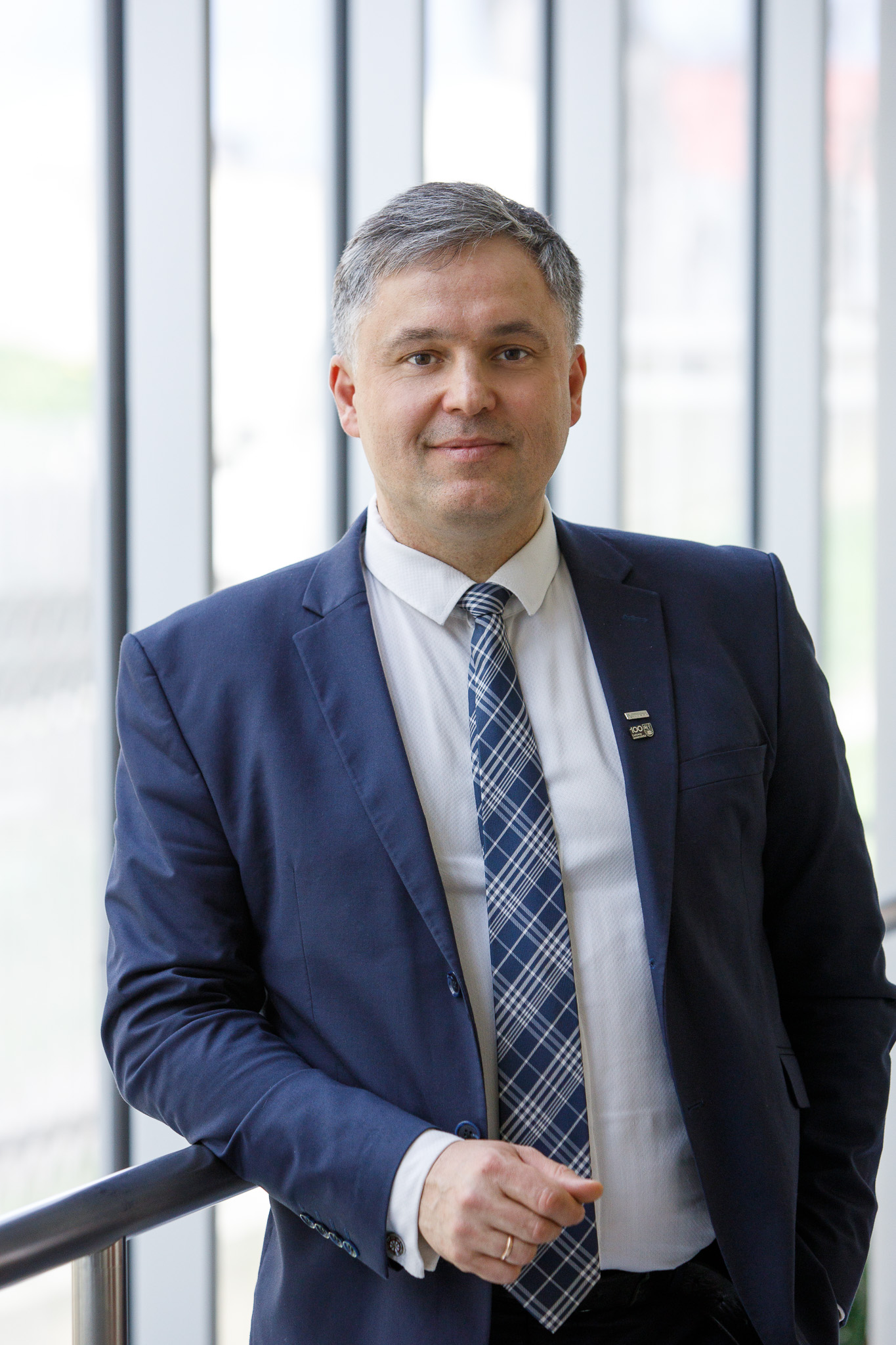
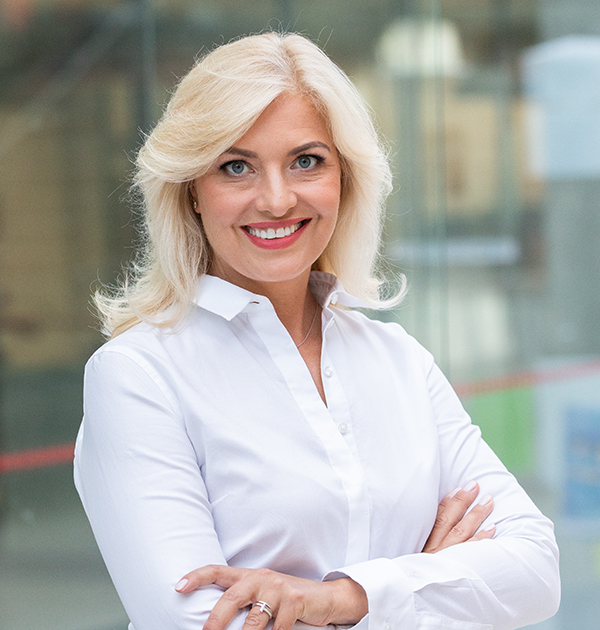
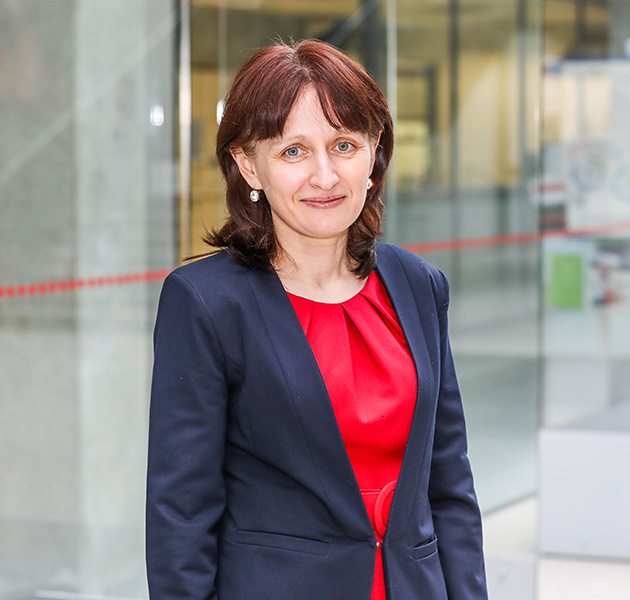
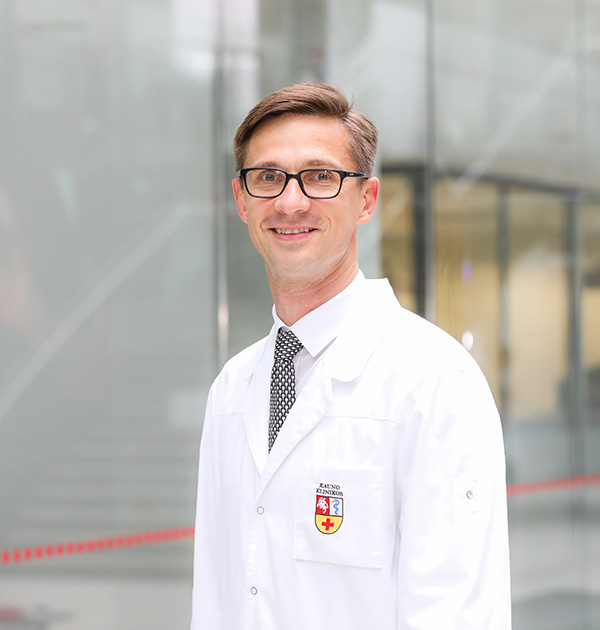
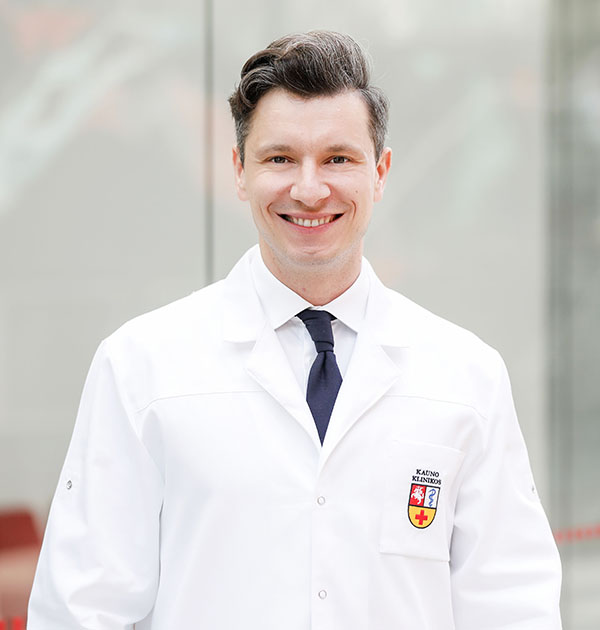
STUDIES
The Faculty of Medicine conducts integrated, second and third cycle studies:
- the integrated study programme Medicine (Health Sciences) in Lithuanian and English;
- Bachelor programmes Medical and Veterinary Biochemistry and Medical and Veterinary Genetics in Lithuanian and English;
- Second cycle study programme Laboratory Medicine Biology (Health Sciences).
- doctoral studies in the field of Medicine.
Structure of the Medicine programme:
Year I – foundation sciences: Anatomy, Histology, Cytology, Genetics, Physics, Chemistry, Statistics, IT, Fundamentals of Scientific Work Organisation.
Year II-III – Integrated problem-based study modules: Fundamentals of Preclinical Studies, Fundamentals of Clinical Studies, Reproductive Health, Fundamentals of Neuroscience, Immune Response and Infection, Movement, Respiration and Circulation, Absorption and Homoeostasis.
Year IV to VI – Clinical Studies and Clinical Practice of Medicine.
Students acquire the knowledge of the theoretical medicine course, from which medical studies begin, in the departments located in the main building of the university, as well as in the Training Laboratory Building next to the Kaunas Clinics of the University. Studies of all the most important clinical subjects are taking place at LSMU Hospital Kaunas Clinics. The hospital has 34 profile clinics with 39 inpatient wards (approximately 1,900 inpatient beds): conservative medicine (cardiology, pulmonology, gastroenterology, nephrology, endocrinology, oncology, haematology, neurology, skin and venereal diseases, rheumatology, rehabilitation), surgery , neurosurgery, orthopaedics and traumatology, plastic and reconstructive surgery, cardiovascular, urology, facial and maxillofacial surgery, eye diseases, ear, nose and throat diseases, anaesthesiology, clinic of maternal and child health, paediatrics obstetrics and gynaecology, paediatric surgery), pathological anatomy, radiology, laboratory medicine.
The emergency department provides emergency care around the clock, and there are 8 resuscitation and intensive care units. Studies also take place in the branches of the University Hospital – Romainiai Tuberculosis Hospital, Oncology Hospital, and in the Family Medicine Clinic belonging to the University Hospital, where primary healthcare services are provided. Kaunas Clinics Consulting Polyclinic has 15 outpatient departments, which are visited by about 1 million patients per year. The hospital is equipped with modern medical equipment: computed tomographs, magnetic resonance imaging devices, positron emission tomographs, ultrasound diagnostic scanners, linear accelerators, other diagnostic and therapeutic equipment, and devices. All tertiary level diagnostic and treatment services are provided, including organ transplants and other complex surgeries. Smaller clinical studies are also carried out at Kaunas Clinical Hospital, which also has modern working environment.
The clinical practice of the medical programme is performed in 32 accredited non-university multi-profile (emergency, internal medicine, surgery, paediatrics, obstetrics) hospitals in various parts of Lithuania. Internships are also available in international hospitals.
The purpose of the Medical and Veterinary Genetics programme – to develop educated, innovative, critical-thinking, qualified genetic specialists with the fundamental knowledge and skills required for work in medical and veterinary genetics and related fields, able to independently perform genetic research using modern analytical methods in accordance with the principles of good laboratory practice and bioethics and evaluation of the received research data.
Medical and Veterinary Biochemistry studies focus on practical skills – working in laboratories; collecting scientific information; solving scientific problems; studies on the structure of the body and tissues; laboratory diagnostics of diseases; the interpretation of the received research data. Laboratory and final works are carried out in LSMU laboratories equipped with the latest laboratory equipment.
Students from many countries of the world study at the Faculty of Medicine. European and world-renowned specialists in theoretical and clinical medicine share their knowledge and experience with the students.
Faculty structure
HISTORY OF THE FaCultY
The origins of the Faculty of Medicine date back to 1920, when the Department of Medicine was established in Lithuanian Higher Education Courses. On 16 February 1922, Dr. P. Avižonis was confirmed as the first dean of the Faculty of Medicine. The Statutes of the University adopted by the Constituent Seimas provided for and started operating the Departments of Medicine, Pharmacy, Odontology and Veterinary Medicine.
In 1930 the University was given the name of Vytautas Magnus University. The new Main Building of the Medical Faculty was opened in 1933. The Dean of the Faculty of Medicine and Lithuanian Medicine Prof. V. Lašas. At the initiative of the Dean of Faculty of Medicine (1924-1946) Prof. V. Lašas, the construction of Vytautas Magnus University Clinics began in 1937. The first patients were admitted to the Clinic in 1940. At that time, the hospital had 663 beds – and was one of the most modern hospitals in Europe.
In 1950 Kaunas State University was reorganised into Kaunas Medical and Kaunas Polytechnic Institutes. Two faculties were established: Medical and Pharmaceutical-Dental. Six-year studies were introduced at the Faculty of Medicine. Later, the Faculty of Medicine was transformed into the Faculty of Theoretical Medicine and the Faculty of Clinical Medicine. In 1989, after the reorganisation of Kaunas Medical Institute, these faculties became subdivisions of Kaunas Medical Academy.
After the restoration of Lithuania’s independence, a new process of reform and reorganisation began, seeking the unity of specialist training, science, and medical practice. Instead of departments, profile departments were established, which combined pedagogical, scientific, and practical work. In 1993 the faculties of Theoretical Medicine and Clinical Medicine were merged into the Faculty of Medicine. After another reorganisation of the higher education school in 1998, the faculty became the Faculty of Medicine of Kaunas University of Medicine, and since 2010 – The Faculty of Medicine of the Medical Academy of the Lithuanian University of Health Sciences.
The works of both the pre-war independent Lithuania (P. Avižonis, V. Lašas, V. Kuzma) and the post-war period (Z. Januškevičius, T. Ivanauskas, J. Kupčinskas), as well restored Independent Lithuania(A. Praškevičius, R. Žaliūnas, V. Jašinskas, R. Benetis, J. Pundzius) are known and valued around the world. The researchers of the faculty actively cooperate with colleagues from international universities and are members of the boards or councils of international scientific societies and associations. A number of prominent foreign medical scholars visit the Faculty of Medicine, where they give lectures to students and doctors at various conferences.
In 2005 the Faculty of Medicine has launched the project “Implementation of the Problem-Based Education System at Kaunas University of Medicine”, which was supported by the European Social Fund and problem-based learning experts at the University of Geneva. Studies according to the problem-based learning model were begun in 2006/2007. The project allowed to develop the former study and research system of the medical programme, to ensure higher professional preparation of future medical specialists for practical work, to improve the qualification of the University lecturers and to expand their pedagogical abilities.
FACULTY LIFE
environment


